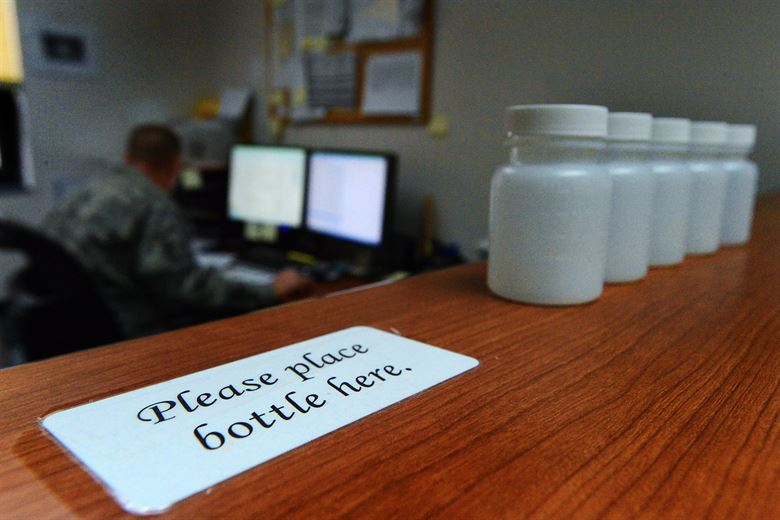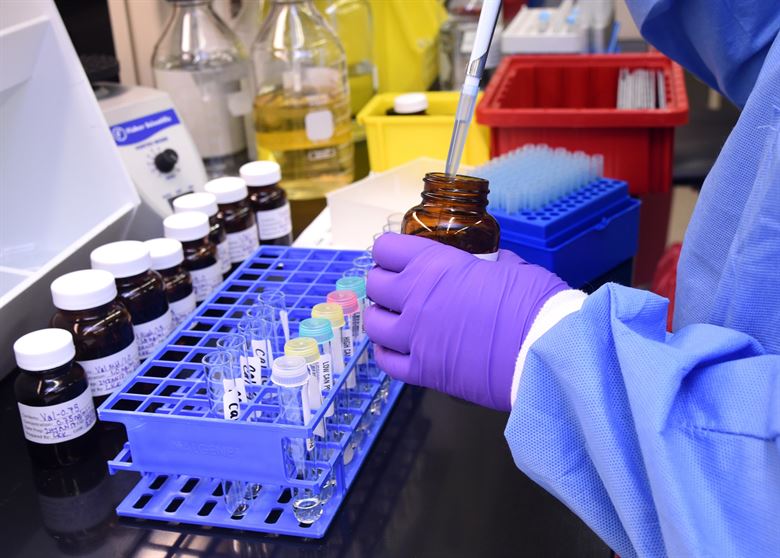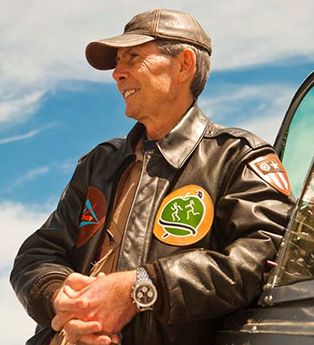If a Pilot Refuses or Fails a DoT Drug Test, is it in His Best Interest to Pretend to have a Drug Problem?
DOT drug testing is an unmitigated disaster. The failures and abuses of DOT drug testing are being imposed on airmen who, if they cannot provide a sufficient quantity of urine, must confess to having a drug problem, even if they do not, if they want to fly.
Even though Congress has directed the Secretary of Health and Human Services to publish in the Federal Register “a final notice of scientific and technical guidelines for hair testing in accordance with Section 5402(b) of the Fixing America’s Surface Transportation Act”² and no later than December 31, 2018 to “publish in the Federal Register a final notice of Mandatory Guidelines for Federal Workplace Drug Testing Programs using oral fluid, based on the notice of proposed mandatory guidelines published in the Federal Register on May 15, 2015 (94 FR 28054)3, the DOT adheres to an antiquated system involving urine testing because the doctors and medical establishment have the infrastructure in place to administer this antiquated technology and have refused to enter into the Twenty-First Century. An example of this antiquated system is the FAA’s Shy Bladder Rule that provides that an airman has refused a drug test if he fails to provide urine unless the failure to provide urine is the result of an anatomical condition or an ascertainable physiological condition4. As we know from the decision of Judge Montaño in Administrator v. Knight5, even if an airman presents the court with testimony from a board certified urologist that the airman had an ascertainable physiological condition that prevented him from providing urine, the airman is doomed to failure6. After all, the mission of the National Transportation Safety Board is not to find whether a particular airman is guilty or innocent of violating a regulation, but whether or not affirmance of the FAA’s Order is required in the interest of “air safety” or in the “public interest”7. The interest of air safety may dictate that an airman who is not using drugs be deemed to have refused his drug test, since in the absence of such a holding, other airmen will avail themselves of the paruresis defense and thereby open the floodgates of litigation8.

In any case, the FAA, which is administering and enforcing the DOT rules, is offering a carrot to pilots who promptly surrender their certificates and put themselves into rehab, because if they do so, they can theoretically requalify as pilots and get back in the cockpit earlier than pursuing a hearing and availing themselves of due process of law.
Any airman who flunks or refuses a drug test is going to have all of his certificates, both airman and medical, revoked. Under FAR §61.13(d)(2), the pilot is going to have his airman certificates revoked for one year after the date of the revocation order. However, in its Settlement Policy for Commercial Pilots in Drug and Alcohol Testing Cases published in 83 Fed.Reg. 34040 (July 19, 2018), the FAA admitted:
Consistent with FAA Policy, AGC-300, issues an order revoking pilot and airman medical certificates only after the thorough review necessary to ensure that legal enforcement action involving the revocation of certificates is appropriate. Although the FAA normally issues emergency orders of revocation for the types of drug or alcohol violations discussed in this notification, the FAA necessarily takes the appropriate amount of time to ensure that the issuance of the order is reasonable and supportable. Accordingly, the period of time between the FAA’s discovery of a drug or alcohol violation and the issuance of a certificate action can be lengthy. Further, the additional time period specified in 14 C.F.R. 61.13(d)(2) adds up to a year after the issuance of an order of revocation. During the period from the discovery of the violation to the expiration of the time period specified in 14 C.F.R. 61.13(d)(2), a pilot may have long successfully completed recovery steps necessary to be found qualified for a special issuance.
As an inducement for pilots to surrender and not resist the FAA’s prosecution of the emergency order of revocation, the FAA has announced the terms of a settlement agreement in the Federal Register that consists of the following:
- The settlement agreement must be executed by the parties within ten (10) days after the FAA transmits the agreement to the pilot.
- The FAA will issue an emergency order revoking all certificates the pilot holds that were issued under 14 C.F.R. Part 61 and 67 immediately upon receiving the fully executed settlement agreement.
- The emergency order of revocation will:
- require the immediate surrender of all certificates the pilot holds that were issued under 14 C.F.R. Part 61 and 67 to Enforcement counsel;
- notify the pilot that the failure to immediately surrender those certificates could subject the pilot to further legal enforcement action, including a civil penalty; and
- inform the pilot that the FAA will not accept an application for a new certificate issued under 14 C.F.R. Part 61 for a period of a year from the date of the issuance of the emergency order of revocation.
- The pilot will waive all appeal rights from the emergency order of revocation.
- The parties will agree to bear their own costs in attorney fees, if any, in connection with the matter.
- The pilot will agree not to initiate any litigation before any court, tribunal, or administrative entity concerning any costs or attorney fees, including applications under the Equal Access to Justice Act, incurred as a result of the above-referenced matter.
- The pilot will agree to waive any and all causes of action against the FAA and its current and/or former officials and employees related to the above-referenced matter9.
In order to induce pilots to waive their constitutional rights to a hearing and theoretically expedite their return to the cockpit by admitting they have a drug problem, the FAA argues this is a desirable course of action because it is predictable, declaring:
This procedure is expected to allow pilots who have established qualifications to hold a new 14 C.F.R. Part 61 certificate, and have met the requirements under 14 C.F.R. Part 67 for a special issuance consistent with participation in the HIMS [Human Intervention Motivation Study] Program, to more quickly resume commercial flight crewmember duties. Indeed, it should allow pilots to apply for a new pilot certificate closer in time to a determination that the pilot is eligible for a special issuance (following timely evaluation, treatment, and continuing comprehensive care in accordance with the HIMS Program). Further, the added predictability of this process should allow pilots who have received a disqualifying DOT drug or alcohol test result, refusal to submit to a DOT test, or violated §91.17(a)(1) through (4) to focus effort and energy on the treatment and recovery process, and allow both the pilot and the FAA to better allocate limited resources10.
So, the message is clear, according to the FAA the best thing for a pilot to do if he flunks a drug test is to get enrolled in the HIMS Program, declare he has a problem even if he does not, and waive his constitutional right to a trial. According to the FAA, if he insists upon availing himself of his rights to due process of law, then he will take even longer to get back in the cockpit. So, as suggested by this Settlement Policy published by the FAA in the Federal Register, the FAA’s suggesting a pilot’s best move will be to admit he has a drug problem and promptly enroll in a HIMS Program and be evaluated even if he flunked the test because he could not provide a sufficient quantity of urine and was thereby deemed to have “refused” the test under the DOT drug testing regulations. This is the price of “air safety” in the United States of America. The FAA knowingly and willfully employs an antiquated system employing urine samples as opposed to saliva or blood or hair, and if the pilot cannot urinate or provide 45 mL of urine, his best bet is to confess to having a drug problem and enroll in a HIMS Program, be evaluated, and allegedly get back in the cockpit more quickly. If the pilot wants to fly, he must admit he has a drug problem even if he does not. What other conclusion are we to draw from the Settlement Policy published in the Federal Register?
These tragic realities have been proven by Judge Montaño’s ruling in Knight. Even if you come to court with a board-certified urologist who testifies you had an ascertainable physiological condition that prevented you from providing a sufficient quantity of urine (37 mL versus 45 mL), you simply cannot win. “Air safety” and the “public interest” trumps your constitutional rights to due process of law.
2 Public Law 115-271, §8106.
3 Id., §8107
4 See, e.g.: (1) 49 C.F.R. §40.191(a)(5) [“As an employee, you have refused to take a DOT drug test if you: …Fail to provide a sufficient amount of urine when directed, and it has been determined, through a required medical evaluation, that there was no adequate medical explanation for the failure (see §40.193(d)(2)); (2) 49 C.F.R. §40.193(e) [“For purposes of this paragraph, a medical condition includes an ascertainable physiological condition (e.g., a urinary system dysfunction) or a medically documented pre-existing psychological disorder, but does not include unsupported assertions of “situational anxiety” or dehydration.”]
5 Administrator v. Knight, NTSB Docket No. SE-30308.
6 Id., Initial Decision, October 10, 2017. See also “…7 to 10% of Americans have a condition (“paruresis”), described as a social anxiety disorder which prevents a person from producing urine on demand or in the presence of other people.” 82 Fed.Reg. 7925 (Jan. 23, 2017).
7 49 U.S.C. §44709(d)(1)(A) [“…that safety in air commerce or air transportation and the public interest do not require affirmation of the order…” (italics supplied)].
8 “Judge Montaño: No, because it is critically important because I am facing situations in cases w[h]ere people go for drug tests are pilots, you know, people who are flying for United or Mr. Knight, you know, doing important work as an A&P mechanic, insuring we’re safe. Dr. Hill: Yeah. Huge. Judge Montaño: Ensuring we’re all safe when we fly when I go home on Delta…” Knight Transcript at 621-24 (italics supplied).
9 83 Fed.Reg. at 34040-34041.
10 Id. at 34041.


